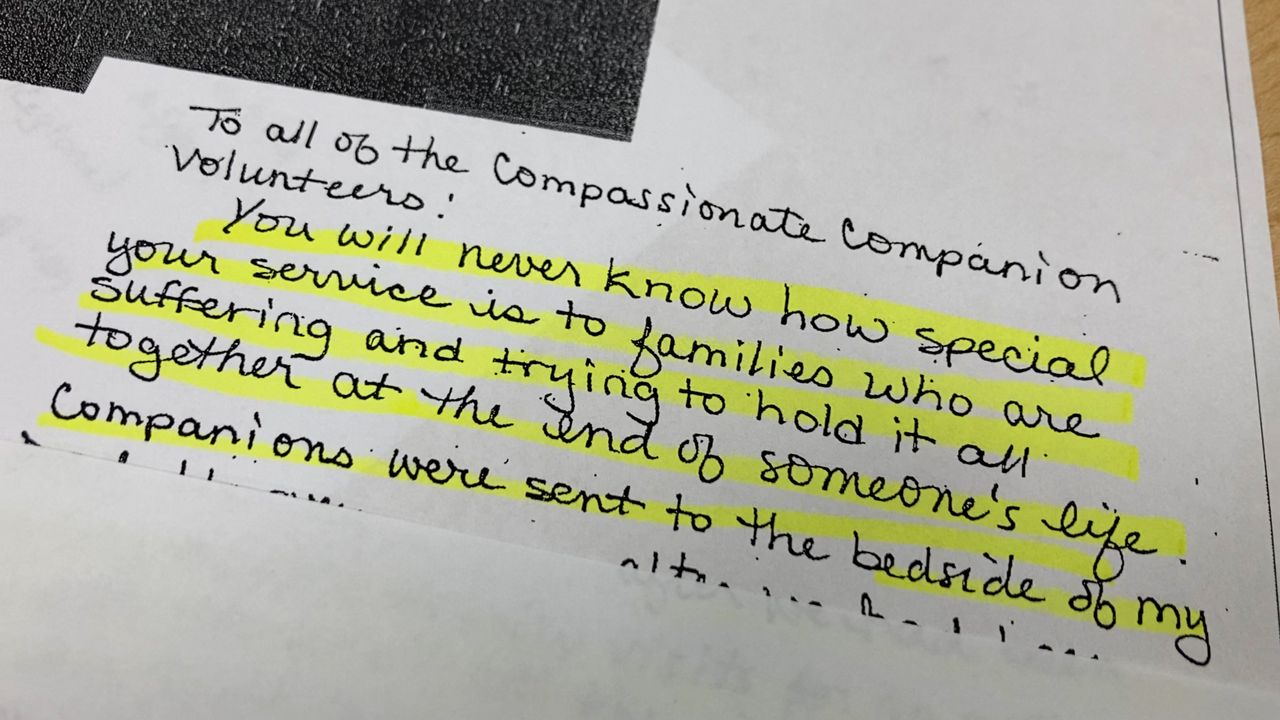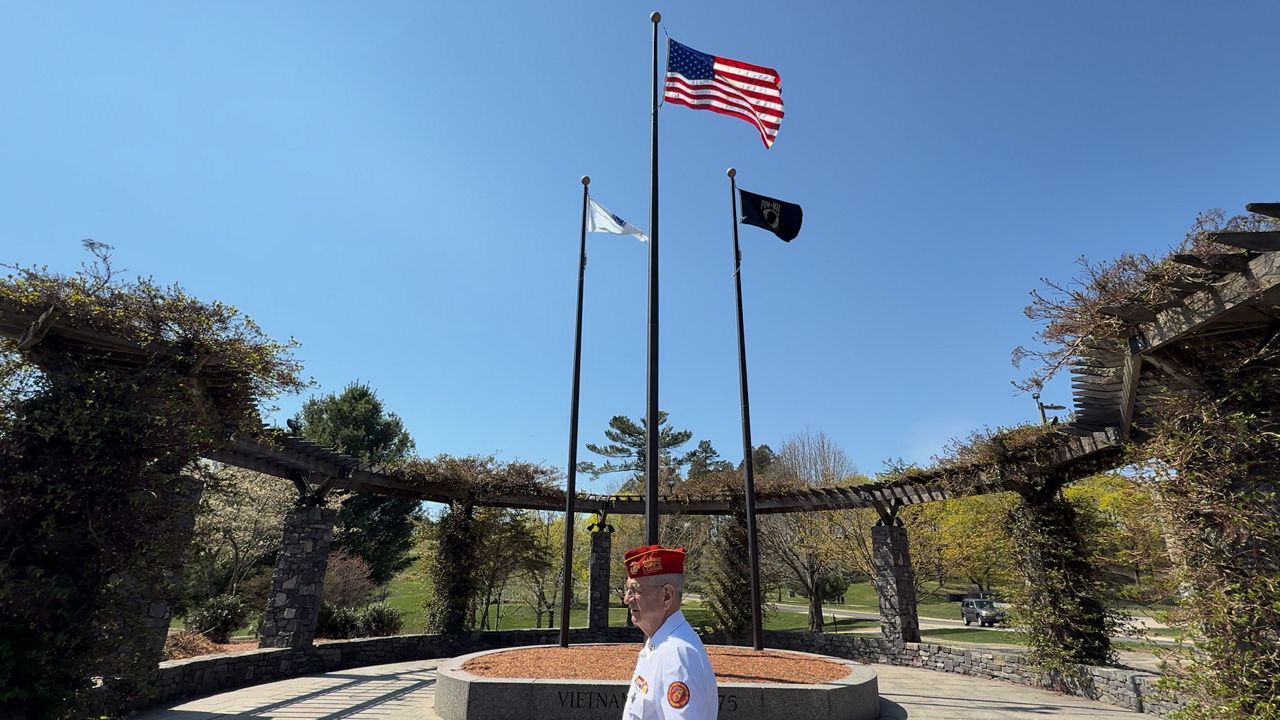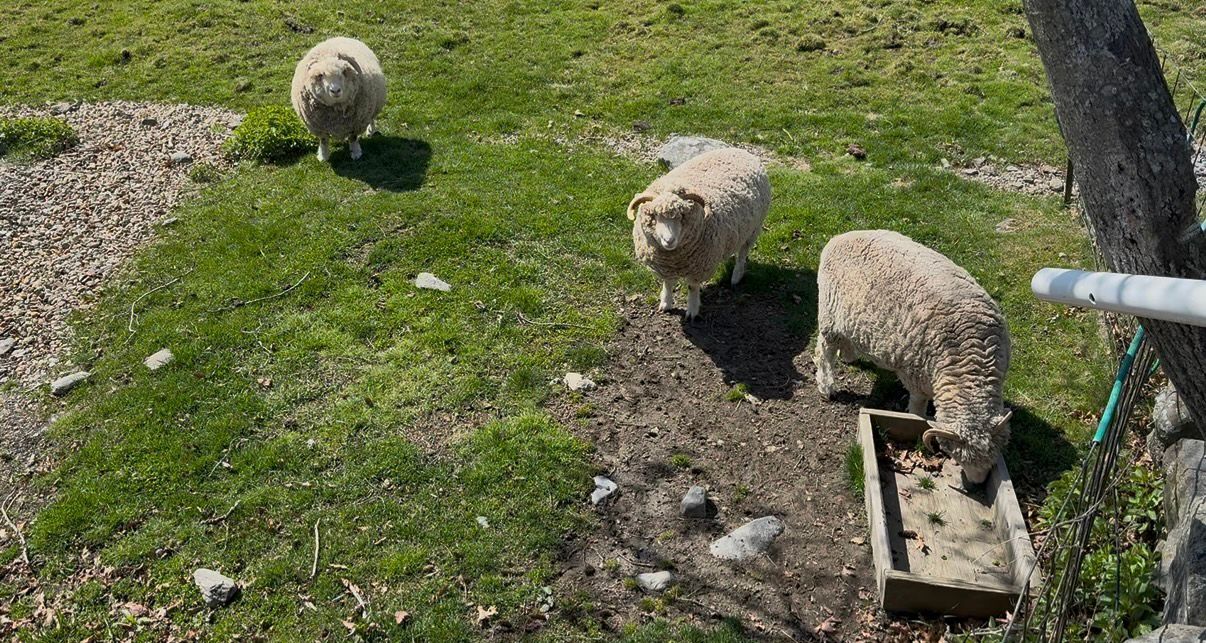MILFORD, Mass. - At Milford Regional Medical Center, a group of volunteers are going above and beyond to comfort dying patients as part of a unique program rarely seen in hospitals.
What You Need To Know
- The Compassionate Companions program enlists volunteers to spend time by the bedside of dying patients
- The program, launched at Milford Regional Medical Center in 2011, has been praised by families
- Volunteers write down details of loved ones' last days in a logbook for families, and many families have written back letters of gratitude
- The program includes 50 volunteers who spent a combined 383 hours volunteering last year
Compassionate Companions began in 2011, and aims to provide comfort and a presence for patients with families who can’t be there at all hours during their final days.
Milford Regional Medical Center was the first hospital in Massachusetts to adopt a program bringing trained volunteers to the bedside of dying patients, and in the early days, director of volunteer services Elaine Willey wasn’t quite sure what to expect.
“When we were first developing this program, I put an ad in the local papers looking for volunteers to provide a comforting presence with patients at the end of life, not knowing the response we would get or if we would get much of a response at all,” Willey said.
The response proved to be more than Willey could’ve imagined.
“People started calling, and probably after the first 25, I almost became teary,” Willey said. “I was just so overwhelmed with the people, and the kindness of people wanting to do this.”
More than 100 people ended up reaching out, and Compassionate Companions now has 50 volunteers.
Two of those volunteers, Rose Cashman and Linda Kasparian Sprague, have been donating their time for roughly ten years. They enjoy their roles providing comfort and company when family members can’t be there overnight, and they've had countless conversations with family members who were able to make it to their loved one’s bedside.
“When I sit in the room with the person, there are big windows and you see cars going by on the street, and life is going on,” Kasparian Sprague said. “But really what it boils down to is this person and their time, and it just brings a lot of meaning to life, and it makes you realize what's really important in life.”
What is important, both volunteers said, is kindness and compassion — traits they say can sometimes be forgotten.
“I can make a difference not just for the person here, but for their family,” Cashman said. “And as time went on, that just became more and more clear that we really were making a difference, helping the families.”
Volunteers write down small, often sentimental details of loved ones’ last days in a logbook for their families: how they prayed with them, played them music or just provided a comforting presence.
Over the years, families have wrote letters back expressing their gratitude.
“The blue afghan that was given to my husband in his last living days, it kept him cozy and warm and he looked so good wrapped up in it,” one person wrote. “He had been in the Navy in his younger days, and the blue evoked the sea that he loved so much.”
“My mother passed away at Milford Hospital this morning after being on palliative care since last Sunday,” another family member wrote. “My sisters live out-of-state, and volunteers were sitting with my mom, mostly through the night and through the early morning. After the first 24 hours of their help, I started to read their notes in the journal. I was immediately overwhelmed by their love for complete strangers, for my mother and for our family and their selflessness to volunteer their time.”
Rose and Linda both decided to volunteer after seeing how important it was to be there for someone in their final moments through their own families — and it brings them comfort knowing patients don’t have to worry about dying alone.
“It takes a village, right?” Cashman said. “It's to help them, and then for me, that act of doing something for someone else brings me joy. And I think it brings a lot of human beings joy.”
“That's what keeps me going,” Kasparian Sprague said. “It's just extremely rewarding, and it just makes you really think about life differently.”
Last year, Compassionate Companions volunteers spent a combined 383 hours by patients’ bedsides.
“It's really hard to believe this program has been in place since 2011, and I'm grateful to all of the staff here, the nurses and the volunteers who participate. But what strikes me most is the feedback that we get from families,” Edward J Kelly, president & CEO of Milford Regional Medical Center., said.
“The volunteers are amazing,” nurse manager Heather Reilly said. “The care that they provide, that extra time that they spend with the patients is invaluable to the patients that we have here at the end of their lives. It's something that we're so fortunate to be a part of. The nursing team really values the service, but the families and the patients especially find solace in the program.”









